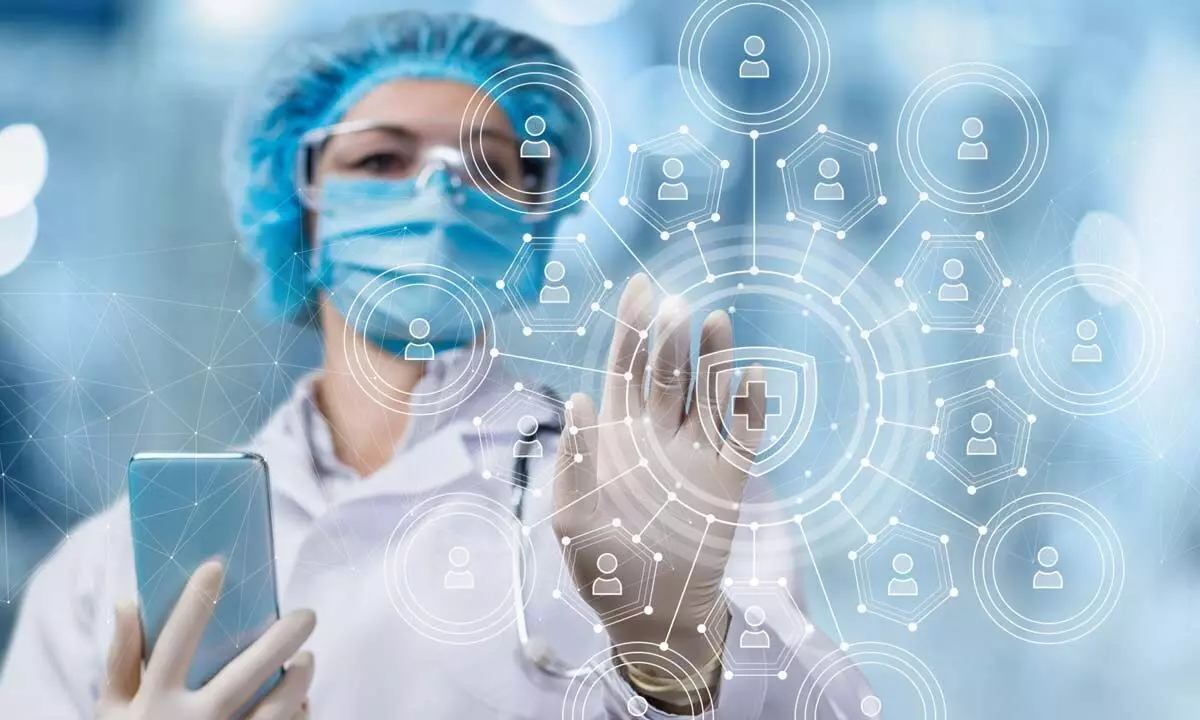Five trends of medical technology post-pandemic

Five trends of medical technology post-pandemic
The pandemic has drastically changed the medical services system.
The pandemic has drastically changed the medical services system. To respond to the need for upgradation, the industry embraced technological progressions. Everywhere in the healthcare industry, we can see the use of new technology for fighting illness, developing vaccines and medicines, and helping people live healthier lives.
Since 2020, many tech companies have focused on utilising their expertise to solve the problems arising from the global pandemic. Healthcare is considered to be a slow-moving industry in various aspects. However, during the pandemic, many companies in the sector turned their attention to technology and its ability to transform the delivery of their products and services.
The pandemic accelerated the digitisation of the healthcare industry. The HIMSS Future of Healthcare Report reveals that 80% of healthcare providers plan to invest more in technology and digital solutions in the next five years. The rapid adoption of wearables, telemedicine, genomics, and personalised medicine, with organisers utilising artificial intelligence (AI), extended reality (XR), internet of things (IoT), and cloud computing to develop and offer new treatments and services are going to remain as a prominent feature of the industry.
Let's decode the five key trends and opportunities of medical technology post-pandemic.
Remote healthcare and telemedicine
In the initial months of the pandemic, the demand for remote healthcare consultations soared from 0.1% to 43.5%. It was because no one was willing to physically visit a healthcare professional and increasing the chances of spreading the virus. Today, if we keep communicable diseases aside, there are many other reasons highlighting the need for remote examination, diagnosis, and treatment of patients. In places and regions where there is a shortage of doctors (India and China), the telehealth trend can potentially save lives by significantly expanding access to medical treatment.
Wearable healthcare gadgets
IoT has a major role to play in the growth and development of the healthcare sector. Wearable gadgets, such as implant devices, monitor patients' runtime data on device applications for critical healthcare trends needs. These devices use medical data to save precious lives when it matters the most. They reduce the time for regular check-ups and allow patients to detect abnormalities in their body functions. Patients can then report these changes to the concerned medical practitioner without visiting them.
The electronic devices have sensors that track calories, steps, heart rates, sleep patterns, etc. This real-time data is sent to an app that users can use to monitor their health. Wearable IoT gadgets have become crucial to preventive healthcare, leaving a positive impact on people's health.
AI disrupting healthcare
Artificial intelligence is a popular inclusion in various industries, and healthcare isn't left behind. AI is used in tandem with IoT for healthcare services. The technology has upgraded the versions of conventional medical instruments. Artificial intelligence, in sync with patented monitoring algorithms and real-time data, has allowed medical practitioners to analyze patients' data and deliver timely feedback to physicians. For instance, with Bluetooth-operated artificial cardiac pacemakers, physicians can monitor accurate data logs of patients in real time. As a result, it is easier for physicians to manage health crises in patients.
Big data
A healthcare trend disrupting the industry is the use of Big Data. Big Data transforms the way available information is analyzed. As the quantity of patients' healthcare records and medication data increases, Big Data is of immense importance to devise the patient's treatment plan and relatively lower their diagnostic costs, thereby improving overall wellbeing.
Additionally, Big Data analysis and advanced data mining techniques help in treating rare diseases using the existing drugs and available treatments.
Personalised medicine and genomics
Conventionally, medicines and treatments were developed on a one-size-fits-all basis. Trials were conducted to optimize drugs for efficacy with the highest number of patients and the lowest number of adverse side effects. With modern-day technology like AI, digital twins, and genomics, there is a possibility to adopt a more personalized approach. It can help tailor treatments as per the individual's requirements.
Genomics, the study of genes, and the use of technology to chart individual genomes are helping in creating personalised medicine. They aid in identifying new treatments for severe diseases, such as arthritis, Alzheimer's disease, and cancer.
Summing up
The trends of medical technology post-pandemic are going to make rapid inroads into people's daily lives. Their benefits are significant, and so is the value they add to the lives of patients and medical practitioners. They can improve the quality of life in the future. With wearable tech devices, one can monitor health, while with AI and Big Data, it is possible to make more concrete decisions regarding a health issue.
Healthcare technology is advancing rapidly, and progress in medical technology and scientific innovation will redefine the healthcare industry.
(The author is the Chancellor & President DY Patil University, Navi Mumbai)








